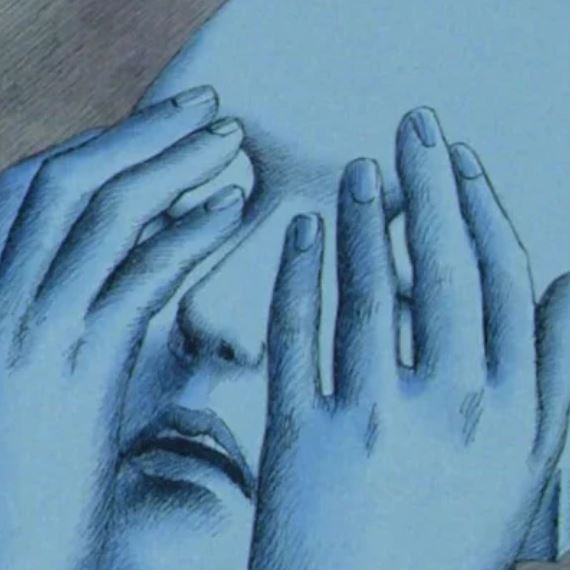Every culture/region has stories and myths about the things existing there. What are the ones you find the most spooky and/or interesting?
deleted by creator
I need more information about your culture, if you’re willing. Are you in a western country? Are you actually in danger of being buried in salt? Is salt burial common in your country? In your religion? Is it a legal practice? I have so many questions, and if you’re open to answering them, you’d make me very happy. Lol. But if not, I understand.
Bet you 5 bucks it’s some stupid wicca thing in the usa.
I’ll take that bet but choose to modify instead of money, a fresh loaf of baked bread from scratch.
deleted by creator
Ding ding ding.
I was raised in it. I take a little offense at calling it stupid but only a little. It’s like, you know how you can call your sibling lame/stupid but if someone else does it then you get annoyed?
Yeah, I’m not Wiccan but I get bothered when people bag on it because we faced serious (bodily injury, houses set on fire, preached about on the streets/in school lunchroom etc.) legit persecution for it in our hometown and that shit is hard to shake. No, not in the south or Midwest.
But yeah she was spewing up some nonsense most likely. Although she claims she got the lore from the local native tribe and to be fair, she (and we) were tight with a lot of tribal members. Her good friend, who may have been the source of the “legend”, is currently an elder of the tribe.
Look, I’m not saying it’s true I’m just answering the prompt 🤣.
Which tribe?
It’s gross and racist to make stuff up about native americans to add to your woowoo wicca stories.Wicca was started as a sex cult by Gerald Gardener a 100 years ago, and it was based almost entierly off a book of complete pulled-from-her-arse bullshit about witch cults in western europe by Margaret Murray.
Do you know what happens when you put lemons in salt? The juices get sucked out and you get preserved lemons. Lemons contain 20% more water than humans but the result would be the same.
If you know wicca is stupid bullshit, stop sharing bad creepypasta about it.
Sorry to disappoint but things are a lot less mysterious than you may be thinking, lol. A comment below called it. United States, new-age/pagan and Gardnerian Wicca. I was raised in it but no longer believe.
Lol, no one is buried in salt for real. Salt is used for what they call “grounding”, and warding/protection, and cleansing (it’s versatile) which is what she was referring to.
I mean…I can’t say no one has ever gotten into a bathtub and filled it with salt but um…that’s not really what she was talking about. Or is it? Who knows.
I’d say Google it for more info but also I am absolutely afraid of what nonsense may come up and make the situation look more ridiculous than what actually was happening.
What she was saying was the equivalent of a superstitions person doing something to ward off the “evil eye” n whatnot. Think a long the lines of spitting on the ground after saying a bad thing, throwing salt over your shoulder, knock on wood, etc.
You were raised in it? I’d love to hear about that. I dabbled in Wicca years ago, as I have in most pagan traditions commonly found in the US. I like learning about religion, but I’ve never met anyone who was raised in it, only converts.
Well, hm, I say “raised” for simplicity. I converted at age 6 or 7 (initiated by me, not converted by another person or family member). Before then, I wasn’t raised with any specific beliefs and when I made a friend who was actually raised wiccan from birth I started hanging out with them and just kind of fell into their religion because it made sense to me. Even at that age I was into new-agey stuff on my own. Before converting, when I prayed (because TV told me to every night), I prayed to “all the gods and goddesses” because I (a kindergartner) didnt want anyone to feel left out. So I wasn’t very traditional in the first place and can you even say a 7 year old converted? It’s more like I discovered the concept of a belief system and Wicca was what I gravitated to, at the time.
Other family members dabbled in the belief but I was the only True Believer until, ironically, my official joining of the religion/coming of age/rite of passage ceremony (think first communion or bar/bat mitzvah but more low key and cheesier because it was made up by a bunch of hippies with no real ties “to the ancients”). I was preparing for the ceremony by doing some ritual self reflecting (meditation stuff) and began to leave my faith.
While I do have some ghosts of pagan beliefs left it’s more like superstitions than a religion or belief system.
Like if I’m in trouble, genuinely afraid lost-in-the-woods trouble, I immediately start praying this specific wiccan song. Because my earliest spirituality wasn’t crafted by the Abrahamic religions so my go-to operating system is pagan.
I can’t think of any real difference between someone who was born in it, converted as a child, or converted later in life except for the fact that I never had Catholic guilt or other Christian or other Abrahamic religious values instilled in me. I was exposed to them a lot because of Western culture (also, Bible camp = free daycare in the summer) but nothing really appealed to me or stuck, especially since I had major issues with the way the Abrahamic religions treated women even as a very young child.
she probably just made it all up
Or stole it from the weeping angels on Doctor Who
Or Macbeth.
I should actually read/watch that one of these days.
This was before the reboot. Were the angels part of the older series?
Sounds a bit like the topiary scene in The Shining. (Book version)
This sounds like a more likely source 🤣.
Nisser, the Danish, or rather Scandinavian, small and cute gods of protection. As far as I know, the nisse can form when an old farmer dies and is buried on their farm. The nisse will then henceforth protect the farm and it’s inhabitants.
Now, while considered fun and cute in modern times, the gårdsnisser (contrary to the more feral and much more dangerous skovnisser/forest nisser) are very gullable with a strong sense of guilt, and they are hotheaded and intractable/stubborn to an unreasonable degree. They will protect you and give good luck if treated well, but will be intolerable if they feel inconvenienced or not properly cared for, to the point where they might directly or indirectly kill everyone on the farm out of spite.
Sometimes they cause atrocities because of misunderstandings, and when finding out that it was a misunderstanding on their part will cause harm to others to make up to their own farm, such as stealing cattle from neighboring farms to make up for the cows they killed earlier.
Now, the possibly worst thing you can do is to try and force a nisse to show itself to you. The small creatures accept indirect gifts, but don’t like direct contact and have a cursing bite, and will most definitely bite if cornered, such as by a nosy and persistent child. This curse makes one fall sick, loosing health and strenght until one perishes in a matter of months/years. As far as I’m aware, there is no cure for the curse, and regarding the nissers tendency to be fooled or act before thinking, well…
Having a nisse on your farm can be a great blessing, but one is also constantly in danger of having their whole family killed over a minor misunderstanding or mood swing. So it is heavily recommended not to acquire any farms where a nisse might reside.
We have the ättestupa in Sweden - the idea that we pushed the elderly off a cliff when they got old.
Since most of us can’t afford retirement this should make a comeback.
Or we push billionaires down a cliff and use that money to take care of the elderly.You didn’t need that 5th house or that sailing yacht anyway.
Dalafíflaþáttr (‘the story of the fools from the valleys’) in which one particular family is so miserly that they prefer to kill themselves than see their wealth spent on hospitality. In this tale, the family members kill themselves by jumping off a cliff which the saga calls the Ættarstapi or Ætternisstapi (“dynasty precipice”), a word which occurs in no Old Norse texts other than this saga.
Funny how this archetype has existed forever across many cultures
There’s a funny scene about this in Norsemen
There’s a less funny scene about this in Midsommar
Stop! Hammer time!
Wasn’t that the only way to get to Valhalla except dying in a fight?
And IIRC you had to jump yourself (sure gramps jumped all by himself!!!).
Nah this was a deliberately comedic scene in Gautreks Saga where members of a family keep sacrificing themselves for absurd reasons. There is some possibility that something like this could have happened in some parts of Norse society but there’s no evidence it was a requirement for entry into Valhalla (Old Norse Valhǫll).
In fact, whereas the Prose Edda (a 13th-century narrative guide to understanding skaldic poetry) does claim that those who fall in battle end up in Valhǫll, and this is supported by evidence from pre-Christian poems such as Grímnismál, Norse mythological sources are actually littered with attestations of people dying in combat but not going to Valhǫll, as well as people dying outside of combat but still ending up in Valhǫll.
One example of this is the character Sinfjǫtli from Vǫlsunga Saga. Sinfjǫtli is poisoned by his mother-in-law at a party, and his father Sigmundr carries his dead body down to the shore where a ferryman offers to take it across the water. Once the body is on the boat, it turns out the ferryman is Odin and he disappears with the body which is elsewhere confirmed to have ended up in Valhǫll in the poem Eiríksmál.
Scholar Jens Peter Schjødt theorized in Pre-Christian Religions of the North that entry into Valhǫll is predicated on a person being dedicated to Odin, which is something a person could do for themselves ritualistically (there are references to marking oneself with a spear for Odin) or could also be done to you by an enemy who has set out to kill you and intends to “give” you to Odin as a way of showing his own dedication.
It also seems logical that Odin wants the best warriors fighting for him at Ragnarok and would take precedence over dying in battle or not.
There’s an argument to be made that warriors who die in battle are less skilled than fighters who survive to a ripe old age. Cohen the Barbarian springs to mind, and probably onto your horse/lady/treasure when you’re not looking… on his way to return fire to the gods.
Right, although this idea is somewhat challenged by the story of Sigurðr who is by all accounts the best, bravest, and most famous of all Norse heroes with exploits that include slaying a dragon and receiving personal assistance from Odin on multiple occasions. Sigurðr Is stabbed by his brother-in-law and is able to actually cut the guy in half before dying himself but is then attested as going to Hel in various ways but never to Valhǫll.
It’s unclear why this is and I haven’t seen much discussion about it in scholarly discourse. There is, of course, lots of discussion about what Hel really is/means. But it may have been something implicit in the story that the ancient Norse would have inferred as being obvious. For example, maybe he lost favor with Odin by rescuing the Valkyrie Sigrdrífa from the sleep curse that Odin had placed upon her.
This sort of an idea shows up in Sonatorrek, ostensibly written by Egill Skalagrimsson. In that poem, Egill is lamenting the loss of his son who drowned in a boating accident. In that context, Egill talks about this tragedy in terms of Odin having broken off friendship with him. As a result, Egill has decided to cease sacrificing to Odin, and the consequence is that he now has a vision of Hel standing on the headland waiting for him.
“Nah, I don’t think I’m going to do it.”
Ah I’ve seen this in Midsommar, thought it was completely made up. Still a shit movie
Not a fan of horror movies then?
Not especially. If we’re talking horror as in scary, then yea, but it has to be more than gratuitous jumpscares. If we’re talking psychological, graphic horror, which I feel is what Midsommar was trying to be, then not too much. I felt it really lacked a purpose and existed only to serve shocking visuals. I found the director’s previous film (The Witch, I think?) to be way more compelling.
It’s perfectly possible to be a fan of a genre, but not of a particular film in that genre. Stop trying to make it weird.
It was an odd addition to their comment, obviously meant to incite a reaction. I bit
In Bengali folklore, we have this thing called Nishi. It’s a nocturnal spirit that wanders around, and calls people by name. She’ll knock on your door, and call you by name. If you answer, you’re placed under her control. And she’ll take you to some remote location, and kill you. It’s also said that if she calls you 3 times, and you hear all 3 calls, there’s no way you can resist answering her.
In my childhood, sometimes people would be found passed out in the forests, and it’d be attributed to the Nishi. I think that they were just drunk/high, and went along with it when the others said it was Nishi.
There’s a Hindi horror comedy movie named Stree on a similar folklore from another part of India. It’s pretty good, would recommend it.
Would people knock on your door and say your name at night just to fuck with you?
You bet they did.
Bro it’s 11:30PM and now someone is surely coming to call me by my name. I’m scared 😶🌫️
… Headphones
Oh, half way through your reply I thought about stree. Great horror comedy but the twist at the end doesn’t make much sense to me.
Irish folklore has lots. Banshees are pretty famous. It’s a ghostly wailing you hear at night. When you hear it someone dies.
One of the nicer stories is children cursed to be swans instead of people due to an evil stepmother. They end up outliving everyone and moving to the land of youth, as swans.
Fairies are evil.
Butterflies are a link to the other world.
Hell is cold, as a hot hell, like Christian hell, was considered to provide a small amount of comfort.
Dante’s Inferno includes both hot and cold sections of Hell, with the cold ones being deeper (and thus worse)
Oh, I didn’t know it was in Dante too. I’d always been led to believe it was in contrast to Christian versions of hell but he is kind of the definitive picture of a lot of Christian concepts of hell.
I’m pretty sure the bible never actually physically describes Hell in that way. The depiction of it that most people are familiar with is straight out of the Divine Comedy. I’m pretty sure the bible doesn’t describe devils with red horns and pitchforks either. And it definitely doesn’t describe angels as sexy humans with bird wings (more like Lovecraftian horrors)
I grew up Catholic and I was taught that Hell isn’t even really a place you can go, it’s more like the punishment of not going to heaven. Not sure if that’s canon though, I haven’t gone to church in like a decade.
There’s a reason that angels in the Bible are always screaming “BE NOT AFRAID!” when they show up somewhere. It’s because they know they look like Cthulhu’s nightmares.
If anyone is interested look up Eddie Lenihan he tells some excellent stories of Irish Folklore. One that got me was of an aul fella and his friend going home from the put and one stayed at the other for a night cap. After one the friend went to go but he said not to, the other people are playing hurling ( a ball game) and not to disturb them. So they had another and the friend said the same but the man insisted.
The man left the house and jumped the gate across the road and landed into the middle of the field, no wall or gate. He could hear cheering and running etc but couldn’t see the gate he came over. He walked and walked but recognised that he must have ten times the width of the field. He turned around and walked the way he came, he quickly came to the gate and jumped back over. He went to his friends door, his friend opened with a drink in hand. “They won’t be long now but you won’t get home until after they’ve finished”
https://en.m.wikipedia.org/wiki/Bunyip
If you were worried about dingos and drop bears when coming to Australia then you don’t want to know about the bunyip.
It’ll fuck you up.
Looks can truly be deceiving He looks straight up friendly, wearing his suspenders and all:

There’s so many conflicting reports the obit consensus is “scary water thing”.
So dangerous nobody even knows what it looks like
Near Antigonish in Nova Scotia is a forest called Dagger Woods…the sign is right on the main highway. The story goes that a young lady was killed there a few centuries ago and you can hear her screams. First far away and then it slowly gets closer and louder till it’s piercing loud. Nothing bad happens but super freaky!
One thing I could think of from Filipino culture is the manananggal (rough translation: one who removes). It’s a sort of humanlike being, but with wings and a very long tongue. At night, its body from the waist up would fly away and leave its lower half behind, then it would hunt for food. It would go on top of pregnant womens’ rooftops and using its long tongue it would feed on the fetus. Once the manananggal gets back to its lower half, the fetus would be gone forever.
In order to get the fetus back, you can prevent the manananggal from returning to its lower half by putting something on the lower half, if you find it (not sure if it was salt or garlic or something else).
One interesting thing that I’m not sure is quite related, but if you have a miscarriage, people say that ‘nakunan ka’ (rough translation: you were taken from / x was taken from you). Could be left over from the idea that the manananggal takes fetuses?
That’s fucking terrifying!
The Saci-Pererê is a Brazilian folklore about a one-legged man who lives in the forest, and loves to play tricks on people. He uses his cap* (autocorrect) to disappear and reappear elsewhere, sets animals loose, steals kid’s toys, etc. Not scary but it’s what came to mind.
Pretty sure you meant cap in place of cape, right? I’ll say that does sound pretty badass though!
Here’s a Wikipedia link for folks who want to read more.
Not sure how such an outlandish tale captivated so many people for so long, but: Trickle-down economics.
😱
Some Salish tribes told stories of the basket ogress which was a disheveled woman who would come and steal misbehaving children, throw them in a basket, and eat them. She was also venerated as bringing wealth.
Well, I mean, remove the kids you will have more wealth!!
In Finnish folklore there’s a couple of scary things but the one that pops to my mind is the water spirits. Näkki, vetehinen and hiisi. They are all slightly different but all have basically been used to scare kids to stay safe around waters or the water spirit of your choice will drown you. There’s stories of them attacking boats too and trying to trick adults into drowning themselves.
Oh, I’ve got one.
In Romania, on June 24th there’s the “Sânziene” day. Which are like fairies. Google sources say they’re good, love/fertility fairies but there’s folk stories that say you shouldn’t swim during that night because they might come and take you (by drowning you).
Here in Northern Italy near Bergamo, we have something called “Gratacornia”, an half human-half goat creature, which was used to scare kids. The Gratacornia waits for the kid on top of the stairs in darkness and scratches his hooves with his long horns (Gratacornia is formed merging “Grata”=to scratch and “Cornia”=horns).
My grandpa would tell this one:
There once was a man who lived all by himself way out in the woods. He lived in a small log cabin with just one room, and that room served as his kitchen, dining room, parlor, and his bedroom too. This man owned three great big hunting dogs. One was called You-Know, one was called Eye-Know, and the third was called Cumptico-Calico.
One winter night the man had run out of food and had to go to bed without supper. Just as he was starting to drift off to sleep, he snapped his eyes open at a noise. He looked around and there in the cabin with him was the curiousest creature that you ever did see. It has two little pointed ears, and two great big red eyes, and it had a great big long tail. The man snatched up his hatchet and swung at the creature, chopping off it’s tail. The creature shrieked and fled back out into the wilderness.
The man cooked and ete the tail for his supper and then went back to bed.
An hour or so later the man wakes with a start. Way out in the distance he hears something call out, “taily-po! Taily-po! All I want’s my taily-po!” The man called out to his dogs, and they came barrelling around the side of the cabin and chased the whatever-it-was far away from the cabin. Only two of the dogs came back.
Later that night, the man awoke again. Something called out, “taily-po! Taily-po! All I want’s my taily-po!”, only from nearer than before. The man called out to his dogs again, and the two dogs crashed across the meadow chasing the whatever-it-was even farther away than before. But this time only one dog came back.
In the deep, dark hours of morning, the man woke again. And from just outside his front door he heard the whatever-it-was demanding again: “Taily-Po! Taily-Po! All I want’s my taily-po!” The man called out to his last dog, who chased the whatever-it-was for miles and miles and never came back.
Just before daylight the man woke once again. He didn’t hear anything, but when he looked down at the foot of his bed he could see two little pointed ears. And after a moment two big, red, fiery eyes were looking at him. Slowly the whatever-it-was crept up the foot of his bed until it was right on top of him. And in a low voice it said, “taily-po. Taily-po. All I want’s my taily-po.”
The man found his voice and screamed, “I ain’t got your taily-po!”
But the whatever-it-was replied, “yes, you has!” And it jumped on the man and scratched him all to pieces!
Some say it got its taily-po back; some say it didn’t. But when the moon shines bright and the wind blows down the valley, you can sometimes hear a voice cry out, “taily-po!”
This feels like a Chakotay story
Well, it was made up by a white guy.
My people have a saying about that. When the white field mouse gathers his store of seeds, the blind wolf howls at a new moon. Akuchimoya.
And it jumped on the man and scratched him all to pieces!
I do like a happy ending. The jerk had it coming. Hopefully the dogs were okay though.















